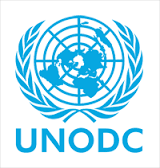VIENNA, 18 May 2018 (UN Information Service) — The 27th session of the Commission on Crime Prevention and Criminal Justice concluded today with resolutions on preventing and combating human trafficking, supporting the Sustainable Development Goals and other priorities.
Speaking at the closing session, Yury Fedotov, Executive Director of the United Nations Office on Drugs and Crime (UNODC), highlighted the Commission’s efforts to further strengthen integrated responses to crime challenges, including by confronting cybercrime, which was the focus of the week’s thematic discussion.

“The resolutions adopted to address urgent threats such as human trafficking also made a critical link to tackling abuse of advanced technologies, to counter such crimes and protect victims,” he said. “The Commission has also helped to emphasize the important fact that technology is also an essential part of the solution. I hope this week will advance our work with you to strengthen partnerships, including with the private sector, to provide technical assistance and enhance international cooperation to prevent and stop cybercrime.”
He further welcomed the Commission’s preparations for the 14th Congress on Crime Prevention and Criminal Justice in Japan in 2020, which will focus on “Advancing crime prevention, criminal justice and the rule of law: towards the achievement of the 2030 Agenda”.
More than 1,100 participants from more than 120 Member States took part in the week-long session. United Nations Secretary-General António Guterres, on his first official visit to Vienna, addressed the Commission on its opening day.
“My overriding priorities since taking office are preventing conflicts and crises, and mobilizing efforts to implement the 2030 Agenda for Sustainable Development. The UN Office on Drugs and Crime, and this Commission, have a crucial role to play,” he said in his remarks.
The 27th session was chaired by Ambassador Lotfi Bouchaara of Morocco. As the main policymaking body of the United Nations addressing crime prevention and criminal justice issues, and a governing body of UNODC, the Commission acts as a forum where Member States decide on resolutions and decisions, exchange knowledge and best practices in preventing and countering crime.
